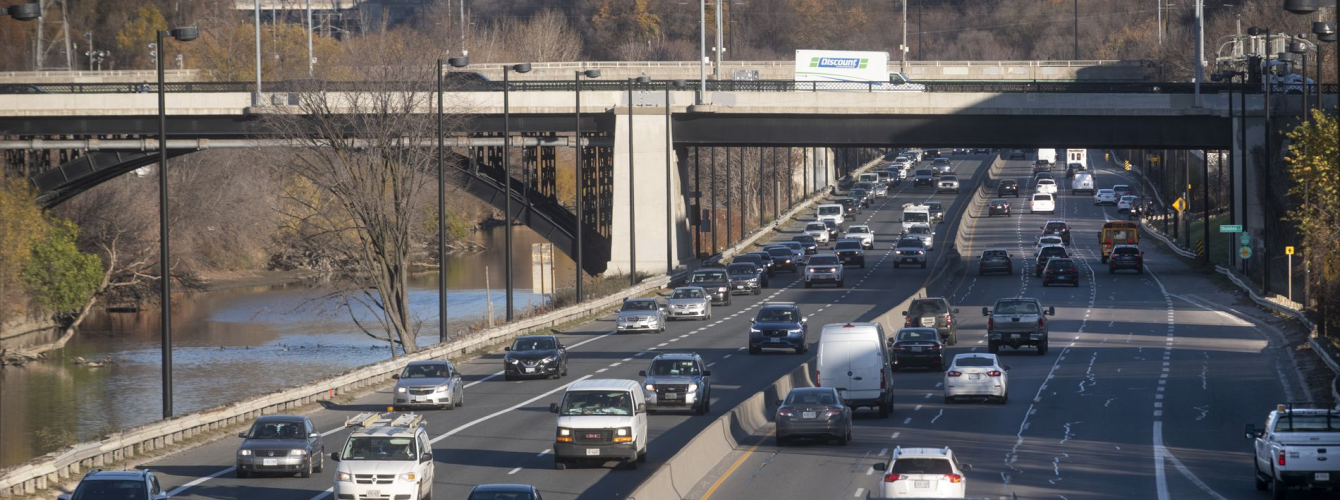The federal government has the right to impose minimum carbon-pricing standards on the provinces, the Supreme Court of Canada has ruledin upholding the centrepiece of Ottawa’s climate change plan.
In a 6-3 decision, the court stressed Ottawa’s authority under Canada’s 1867 Constitution to legislate on matters of national concern – and the provinces’ inability to fight global warming effectively on their own.
The majority ruling, written by Chief Justice Richard Wagner, described climate change as “a threat of the highest order to the country, and indeed the world. This context, on its own, provides some assurance that … Canada is not seeking to invoke the national concern doctrine too lightly. The undisputed existence of a threat to the future of humanity cannot be ignored.”
It added: “A provincial failure to act directly threatens Canada as a whole.” Canada would not be able to push for global action on climate change if provinces were not co-operating in the fight against it, the majority said.
The dissenters were Justice Suzanne Côté, Justice Russell Brown and Justice Malcolm Rowe. Justice Côté said the federal carbon-pricing law gives too much discretion to cabinet. Justice Brown and Justice Rowe said Ottawa had strayed into provincial jurisdiction and that the national concern power is to be reserved for matters in which the provinces have no legislative authority. They said a provincial matter cannot be transformed into a national one simply by invoking minimum national standards.
A 2018 federal law required provinces to put a price on greenhouse gas emissions, which contribute to the warming of the planet. The idea was that the cost would discourage businesses and consumers from generating such pollutants. Provinces are free to develop their own pricing systems, as long as they meet the minimum federal standard.
The case tested Canada’s ability as a federal state to address climate change, described by a lower court as an existential threat to human civilization and the global ecosystem.
The federal government developed the law with the agreement of most provinces in order to meet the country’s obligations under the 2015 Paris Agreement, which seeks to limit the increase in the Earth’s surface temperatures to 1.5 degrees by 2050. But provincial elections led to changes in government, and ultimately six provinces opposed the carbon-pricing law at the Supreme Court.
The fight over the law led to one of the most important federalism cases in Canadian history. Alberta, Saskatchewan, Manitoba, Quebec, Ontario and New Brunswick argued that Ottawa had encroached on their jurisdiction. Alberta went so far as to tell the Supreme Court that Canada’s future as a federal state – one in which the central government works collaboratively with the provinces – was imperiled. Ottawa argued that the central government must be able to address national and global crises. British Columbia intervened in support of the law. None of the provinces disputed the existence of climate change.
Asked about next steps in working with the provinces, federal Environment Minister Jonathan Wilkinson acknowledged Thursday that the premiers of some provinces continue to oppose putting a price on pollution.
Now, however, he said he hoped those provinces would establish their own relevant carbon tax or cap-and-trade programs.
“I certainly would hope that would be the case,” Mr. Wilkinson told a news conference in Vancouver.
“The way in which we have implemented the price on pollution is flexible. It allows provinces to be able to put in place systems that they believe more fully reflect or fully reflect their local economies and some of their local priorities.”
The minister said he hoped to work with all of the provinces on their climate-action plans.
“Those are conversations we will be having going forward,” he said.
He said he assumes the provinces that have opposed the federal government, and taken it to court on this issue need time to reflect on where they will go next on climate policy.
“Provincial governments are increasingly becoming aware they need to respond to the views and the interests of their citizens and we’re seeing that in even some of the recalcitrant jurisdictions on the pricing issue.”
The minister noted there are many provinces looking for options to accelerate their actions on climate change.
Conservative Party Leader Erin O’Toole, meanwhile said that, regardless of the Supreme Court ruling, a Conservative government would repeal the carbon tax.
“We will protect the environment and fight the reality of climate change, but we won’t so it by making the poorest pay more,” Mr. O’Toole said in a statement.
“The Supreme Court recognized that policies related to emission reduction touch on federal and provincial jurisdiction. Conservatives prefer a collaborative approach to tackling climate change to make progress while also helping maintain a strong economy.”
Last week, Mr. O’Toole told a party policy convention that while dealing with climate change is important, “getting our economy back on track is more important.”
Mr. O’Toole repeated his commitment to release a “clear and comprehensive” climate plan. He has said the party will do so soon, before an expected federal election.
In Toronto, federal Green Party Leader Annamie Paul said the ruling is “good news” because putting a price on carbon is a key, efficient element to reducing greenhouse cases.
Ms. Paul also told a news conference she is encouraged that the Supreme Court has validated climate change as real, requiring a coordinated response across Canada, with a “critical role” for the federal government.
“We now know that we have a partner in the Supreme Court, that they recognize the seriousness, the urgency of the matter and the need for coordination and collaboration across levels of government.”
That cooperation is key, she said.
“Even if the Supreme Court had ruled differently today, it is something that I would have wanted to see and I would have expected from every level of government because that is what people of Canada require,” she said.
“They want ambition on the climate.”
She said the ruling opens a new set of possibilities for tackling the climate emergency such as a carbon border that would put a carbon price on certain goods imported from countries with greenhouse gas emission reduction policies and practices deemed weak.
Global warming was not an issue when Canada’s founding Constitution was created in 1867. The environment is generally seen as a shared responsibility between the provinces and Ottawa. In 1982, the Constitution was amended to spell out provincial jurisdiction over the development of natural resources within their boundaries. But the 1867 Constitution says Ottawa has the authority to legislate on matters of national concern that are not explicitly mentioned in the founding document.
The carbon-pricing law case began when Alberta, Saskatchewan and Ontario asked their courts of appeal for an opinion on the constitutionality of the law. Such a case is known as a reference, and the court’s opinion is only advisory. The three appeal courts were split: Ontario’s ruled 4-1 to uphold the law, Saskatchewan’s upheld it in a 3-2 vote, but Alberta’s ruled 4-1 that the law is unconstitutional. Appeals of those rulings brought the case to the Supreme Court.
Alberta Chief Justice Catherine Fraser, writing for three of the four judges in the appeal-court majority, called the federal law a “constitutional Trojan horse,” adding: “Almost every aspect of the provinces’ development and management of their natural resources, all provincial industries and every action of citizens in a province would be subject to federal regulation to reduce GHG emissions.”
More than two dozen groups, including those representing Indigenous peoples, environmental organizations and taxpayers, intervened at the Supreme Court on both sides of the law.
In B.C., provincial Environment Minister George Heyman said the government is very pleased with the top court’s ruling.
He noted that the province intervened in the court case in support of the federal government.
“We supported the federal government’s right to impose a carbon-pricing system or to ensure any system provinces had in place was equivalent and of course that’s what the courts ruled today,” he said in a news conference.
He said the decision reaffirms the carbon tax that the province has had since 2008.
“I think that Ottawa has found a pricing system that is largely supported internationally. We will have to look at whether we mirror their pricing system or put in place some sort of equivalent. We haven’t examined that. That option is open, but clearly whatever we do will line up with what Ottawa is planning.”
Mr. Heyman said he has discussed the carbon tax with other provincial environment ministers, and that it helps to make the point that climate action can co-exist with a strong economy.
B.C.’s carbon tax is supposed to rise this April. 1 to $40 per tonne, and then $50 in another year.
The Canadian Federation of Independent Business (CFIB), meanwhile, said the decision was “deeply disappointing for small businesses in Ontario, Manitoba, Saskatchewan and Alberta.”
CFIB president Dan Kelly said in a statement the carbon tax places a disproportionately high financial burden on small firms that can’t afford an increase in their overall tax burden, “especially as many remain in full lockdown or subject to significant COVID-19 related restrictions.”
Mr. Kelly said some of the programs intended to support small firms reduce their carbon emissions have never been introduced, and urged the federal government to delay any further increases in the carbon tax for the foreseeable future. The CFIB would also like Ottawa to change how the tax is redistributed so that small businesses are rebated an amount similar to what they have paid.
Merran Smith, executive director of Clean Energy Canada, a think tank at Simon Fraser University in B.C., was pleased with the decision. As Canada’s largest trading partners chart ambitious courses to cleaner economies, she said, it is crucial Canada use policies like carbon pricing to remain competitive.
“Any serious climate plan needs a backbone that does the heavy lifting, and carbon pricing is widely considered the most cost-effective way to reduce emissions,” Ms. Smith said in a statement.
“It’s the intersection of climate ambition and smart economic policy.”
The manifestations of climate change on Canada include major wildfires in Alberta in 2016 and in B.C. in 2017 and 2018, as well as destructive floods in Ontario and Quebec in 2017 and in B.C., Ontario, Quebec and New Brunswick the following year, according to the Ontario Court of Appeal’s 2019 carbon-pricing ruling, which cited “uncontested evidence.”
Bloc Quebecois Environment spokesperson Monique Pauzé said the Supreme Court ruling should not be used as a pretext for the federal government to dictate what Quebec should do in its own areas of jurisdiction.
Ms. Pauzé noted, in a statement, that Quebec’s system of reducing greenhouse-gas emissions is widely admired.
Given its “bottom of the class” performance on climate change, Ms. Pauzé said the federal government has no lessons to teach Quebec, but should, instead, be inspired by the province.
—
Source: The Globe and Mail | This text was excerpted from the media outlet cited on March 25, 2021 and is provided to Noia members for information purposes only. Any opinion expressed therein is neither attributable to nor endorsed by Noia.






